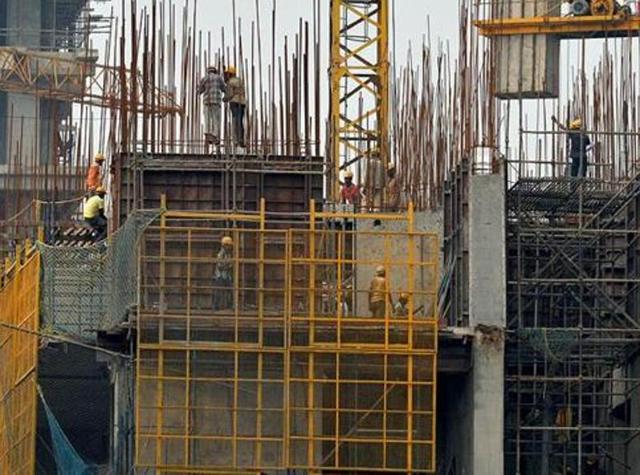More in tax net, high property tax to aid growth: Survey
Pitching for a major overhaul in the tax regime, the Economic Survey said India needs to increase its tax-to-GDP ratio while spending more on health and education. The report flagged steps to broaden India’s narrow tax base, arguing that 20% of individuals should pay tax on their earnings compared to just 5.5% now. The easiest way to do this would be to not raise thresholds on tax breaks, and review and phase out such exemptions.
Pitching for a major overhaul in the tax regime, the Economic Survey said India needs to increase its tax-to-GDP ratio while spending more on health and education. The report flagged steps to broaden India’s narrow tax base, arguing that 20% of individuals should pay tax on their earnings compared to just 5.5% now. The easiest way to do this would be to not raise thresholds on tax breaks, and review and phase out such exemptions.

The survey called for higher property tax rates to check speculation in real estate, along with “a reasonable taxation on the better-off individuals in the country” irrespective of their sources of income — industry, services, real estate and agriculture.
The survey expressed “disappointment” over the delay in the passage of the Goods and Services Tax (GST) bill, saying that once implemented, GST will usher in “unprecedented reform” in modern global tax history.
“India’s overall tax-to-GDP is about 5.4 percentage points less than that of comparable countries. India spends on an average about 3.4 percentage points less vis-a-vis comparable countries on health and education,” it said. At present, India’s tax-to-GDP ratio is 16.6%, well below the emerging market economy and OECD averages of 21% and 34% respectively, the survey pointed out.
Projecting taxpaying and political participation as the two most important accountability mechanisms wielded by citizens, the survey said there is a huge difference in the taxpaying and voting population, which results in “contrasting phenomena such as the Indian state being able to avert famines while chronic malnutrition remains a challenge, organising mega events but routine safety for women being more difficult to achieve, and effective state response to floods and tsunami while water and power metering remain more challenging.”
It also suggested that India should opt for an alternative to fiscal consolidation, which “would be to reduce subsidies to the well-off amounting to about `1 lakh crore by better targeting subsides to the poor.”
Stating that taxes and expenditure should be viewed not just from a fiscal perspective, but also from an institutional one, it added that the implementation of GST, while highly desirable and necessary, will have limited impact in furthering the broader objective of citizen participation, state building and democratic accountability.
GST will bring in a single-rate indirect tax in the country and will affect an estimated 2-2.5 million excise and service tax payers. It has the potential to boost India’s GDP by 1-2 per cent.
“Accelerated structural reforms at the Centre, the dynamism of competitive federalism, and good economics being good politics could all combine to maintain the fundamental promise that is India,” the survey said.
The government had originally planned to roll out GST from April 1, 2016. However, the bill in stuck in Rajya Sabha as the Congress is opposed to three clauses in it. The ruling NDA does not have a majority in the Upper House.
“Accelerated structural reforms at the Centre, the dynamism of competitive federalism, and good economics being good politics could all combine to maintain the fundamental promise that is India,” the survey said.
The government had originally planned to roll out GST from April 1, 2016. However, the bill in stuck in the Rajya Sabha as Congress is opposed to three clauses in the bill. The ruling NDA does not have a majority in the Upper House.
Stay informed on Business News, TCS Q4 Results Live along with Gold Rates Today, India News and other related updates on Hindustan Times Website and APPs



